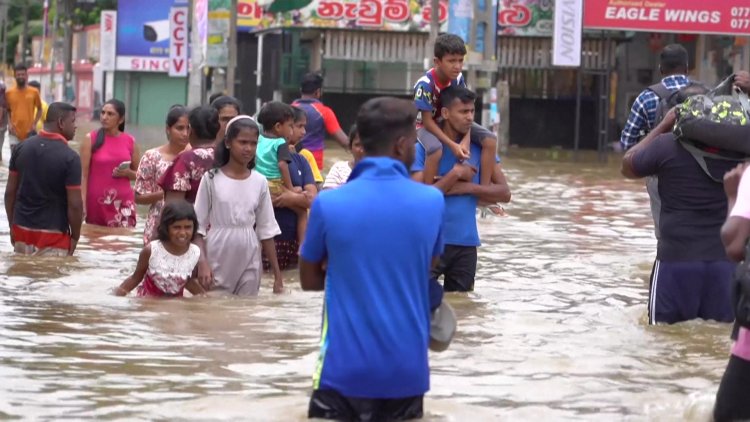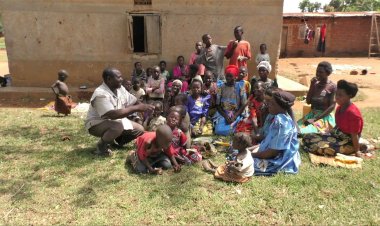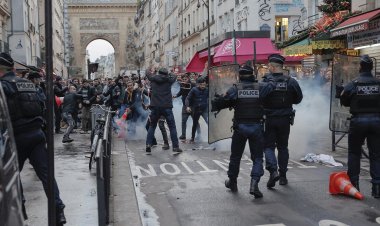Flash Floods and Mudslides Kill 14 in Sri Lanka

People navigate floodwaters in Colombo, as flash floods, mudslides and falling trees have killed at least 14 people in Sri Lanka, with the island nation battered by monsoon storms.
While Sri Lanka depends on the seasonal monsoon rain for irrigation as well as hydroelectricity, experts have warned that it faces more frequent floods as the world heats up due to climate change.
Flash floods, mudslides and falling trees have killed at least 14 people in Sri Lanka as the island nation is battered by monsoon storms, the country's disaster center said.
Some drowned, including three members of the same family swept away near the capital Colombo.
Others were buried alive in mudslides, including an 11-year-old girl and a 20-year-old man, the Disaster Management Centre (DMC) said.
Nine other people were crushed and killed when trees fell on them in seven districts since the monsoon intensified on May 21, the DMC said.
While Sri Lanka depends on the seasonal monsoon rain for irrigation as well as hydroelectricity, experts have warned that it faces more frequent floods as the world heats due to climate change.
The DMC said 20 out of the country's 25 districts were affected by heavy rain and issued warnings to people living on the banks of main rivers to move to higher ground.
Flights arriving at Colombo's main international airport were diverted to a smaller airport, and some key highways were flooded at several exits.
The government also ordered all schools to remain shut after the weekend holiday, as more rain was forecast.
"There could be more heavy rains accompanied by strong winds and thunder," the DMC said.
Last week, wildlife authorities found seven carcasses of young elephants who drowned in the biggest single loss of the animals in five years.
The onset of the southwest monsoon triggered flooding in the elephant habitat in Dimbulagala, around 250 kilometers northeast of Colombo.















